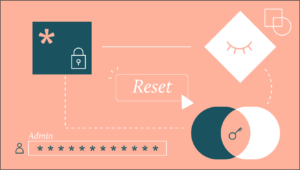AI is being used to streamline processes, improve accuracy, and make the mortgage process more efficient for both borrowers and lenders.
Here are some of the ways that AI is revolutionizing mortgages:
- Automating tasks: AI can automate many of the manual tasks involved in the mortgage process, such as data entry, document processing, and underwriting. This frees up human employees to focus on more complex tasks, such as customer service and relationship building.
- Improving accuracy: AI can be used to improve the accuracy of mortgage decisions. For example, AI can be used to analyze large amounts of data to identify patterns and trends that may not be obvious to human analysts. This can help lenders make more informed decisions about who to approve for a mortgage and what interest rate to offer.
- Making the process more efficient: AI can make the mortgage process more efficient by streamlining the flow of information and automating tasks. This can reduce the time it takes to close a loan, which can save borrowers money on interest.
How will AI impact the future of mortgages?
As AI continues to develop, it is likely to have a significant impact on the future of mortgages. Some of the potential impacts of AI on mortgages include:
- More personalized experiences: AI can be used to create more personalized mortgage experiences for borrowers. For example, AI can be used to recommend mortgage products that are a good fit for a borrower’s individual needs and circumstances.
- Faster and more efficient closings: AI can help to speed up the mortgage closing process, which can save borrowers money on interest.
- More transparency: AI can help to increase transparency in the mortgage process. For example, AI can be used to provide borrowers with real-time updates on the status of their loan application.
- Lower costs: AI can help to lower the costs of mortgages for both borrowers and lenders. This is because AI can automate tasks, improve accuracy, and make the process more efficient.
Overall, AI is having a positive impact on the mortgage industry. AI is making the mortgage process more efficient, accurate, and personalized. As AI continues to develop, it is likely to have an even greater impact on the future of mortgages.
What are the challenges of AI in mortgages?
While AI has the potential to revolutionize the mortgage industry, there are some challenges that need to be addressed. These challenges include:
- Bias: AI algorithms can be biased, which can lead to discrimination against certain borrowers. This is a serious challenge that needs to be addressed in order to ensure that AI is used fairly in the mortgage industry.
- Security: AI systems can be hacked, which could put borrowers’ personal information at risk. This is a serious security risk that needs to be addressed in order to protect borrowers.
- Cost: AI systems can be expensive to develop and deploy. This could make it difficult for smaller lenders to adopt AI, which could lead to a lack of competition in the mortgage industry.
Despite these challenges, the potential benefits of AI in mortgages outweigh the risks. AI has the potential to make the mortgage process more efficient, accurate, and personalized. This could save borrowers money and make it easier for them to buy a home. As AI continues to develop, it is likely to have an even greater impact on the future of mortgages.











